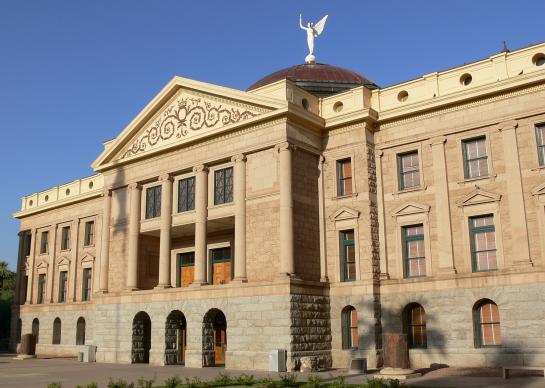AZ Legislative Update 03-24-2023

The Governor’s office criticized the announcement, accusing Republicans of creating a “false urgency” around a routine appropriations request that does not impact state general fund dollars or the next fiscal year.
The increased talk about budget has enabled Republican leadership teams to ramp up their internal talks with legislators about spending priorities, though, and they’re reaching out to members of both parties to identify the top items lawmakers want to see in a budget package before they’ll vote for it.
Floor Votes Move Bills Toward Governor’s Desk
Legislative Democrats tried to force a vote to ratify the Equal Rights Amendment this week, but Republicans blocked the effort to pass ratification. Democratic lawmakers described the ratification as an important statement for women’s rights, while Republicans expressed doubt that the Amendment is necessary or effective.
There were many other partisan divides during floor sessions, as well. Republicans voted to ban publicly funded diversity, equity, and inclusion programs, tell private employers to accept religious exemptions for mandatory vaccines, require public entities to contract only with companies that do not discriminate against firearm entities, and create a new list of banned books in schools.
Bipartisan opposition led to the failure of bills that would fund school gardening programs, extend research and development tax credits, and require a new election if anyone had to wait more than 90 minutes to vote.
Priority Bills
This week, the Senate:
· Voted 25-4 in favor of SB 1032 (developmental disabilities; spina bifida).
· Voted 16-13 in favor of SB 1411 (developmental disabilities; parents; guardianship) with an amendment.
· Voted 18-11 in favor of SB 1717 (dual enrollment; revisions; appropriations).
Next week:
· The House Education Committee will consider SB 1205 (foster children; education; best interest) and SB 1315 (emergency response; students with disabilities).
· The House Health & Human Services Committee will consider SB 1032 (developmental disabilities; spina bifida).
· The Senate Government Committee will consider HB 2456 (ASDB; continuation), and the Senate Education Committee will consider an amendment to HB 2291 that would also continue the ASDB.
· The Senate Health & Human Services Committee will consider HB 2455 (developmental disabilities; Prader-Willi syndrome).
HB 2460 (suspension; requirements; K-4 students) is ready for a Senate floor debate, which could be scheduled at any time.
Other proposals of interest have fallen behind and are not currently scheduled for hearings or votes:
· SB 1044 (student discipline; nonattendance; suspension; requirements)
· SB 1209 (education and career exploration program)
· SB 1272 (CTEs; in-demand programs; funding)
· SB 1417 (students with disabilities; diaper changes)
· SB 1495 (K-12; school funding; revisions)
HB 2800 (teacher salary increase; public schools) has not received a House vote and is unlikely to advance this year. SB 1402 (ASDB; children with disabilities) will not advance; the sponsor will work on the issue after the legislative session adjourns to craft legislation for next year.
What’s Next?
Most committees have just one more week to consider bills, and lawmakers will dedicate long hours to debate and votes in committee hearings. Many bills await final votes before they reach the Governor’s desk, and the House and Senate will continue moving proposals closer to that finish line. All eyes will be on Republican leaders as they hold closed-door negotiations in hopes of crafting a budget proposal they can introduce.
In the News
State agencies cannot discriminate against employees’ hair style and texture. The Arizona Education Association introduced its budget requests. Enrollment in the Empowerment Scholarship Account (ESA) program keeps climbing – and so do the costs.
On the Bright Side…
Mr. Pickles is a dad.